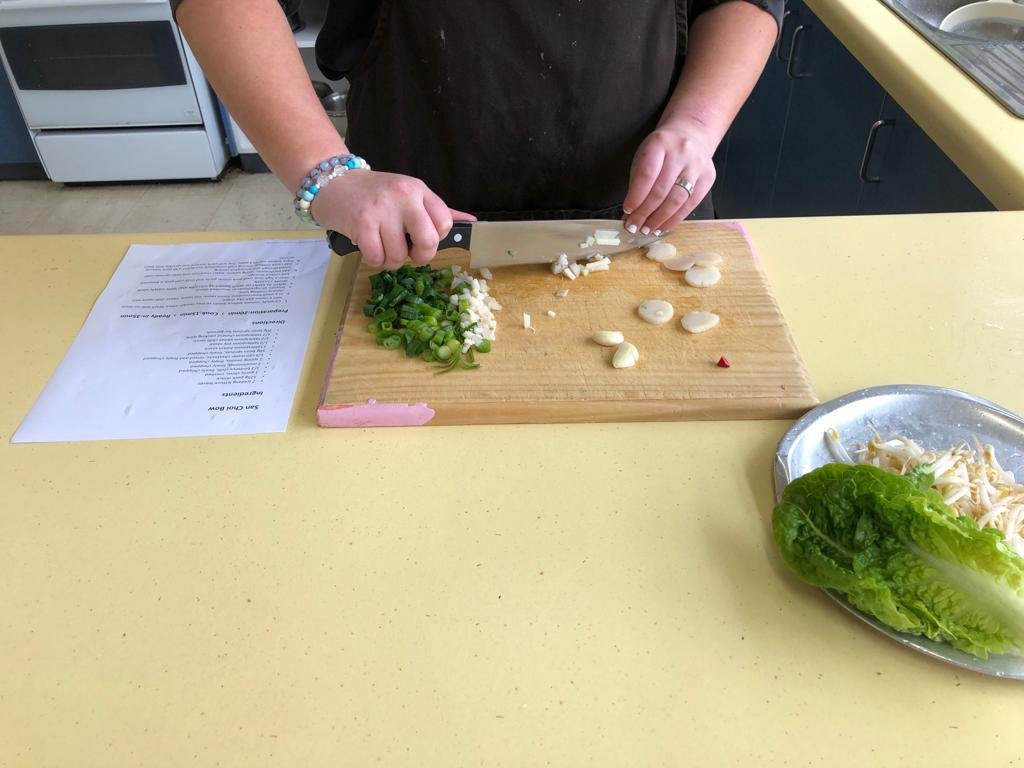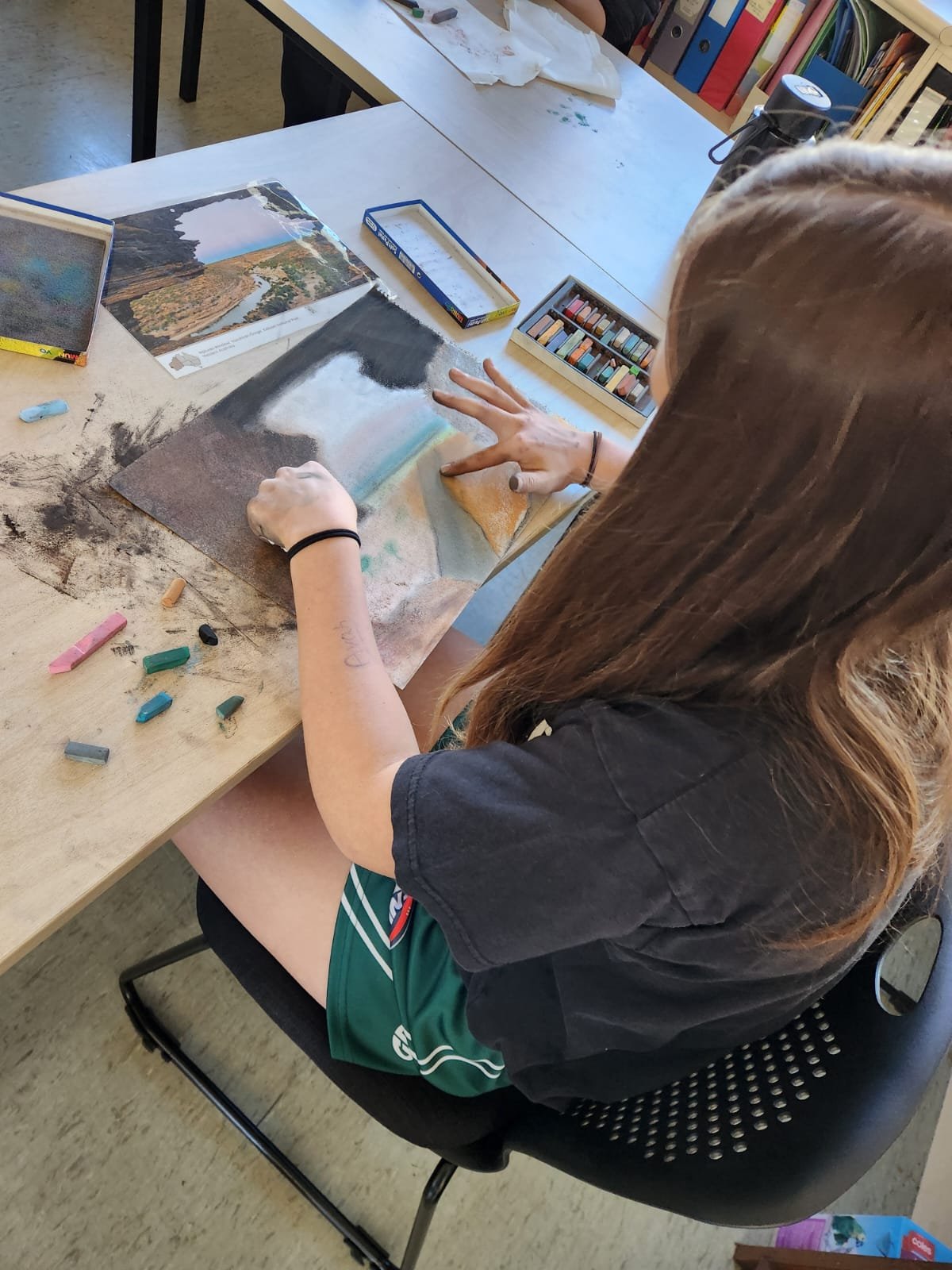Our Program
The Heidelberg Teaching Unit (HTU) has a strong commitment to delivering a quality and meaningful curriculum and a flexible and innovative approach to challenging behaviours. All programs are delivered in a multi-modal format to assist in engaging students with varying strengths and areas of need.
The curriculum is focused on key learning areas and adopts a structure and timetable similar to that of mainstream schools. However, the curriculum at the HTU is more importantly based on the skills and needs of the students who attend the program. This results in a curriculum that is fluid and responsive, meaning that staff review and refine programs and lessons on a regular basis to cater for individual student needs.
The cornerstone of learning at HTU is the focus on the development of key skill areas related to behavioural change in students. At HTU we hold a strong belief that Empathy, Reflection, Behavioural Change, Alternative Options to Past Behaviours and, Decision Making Skills can be modelled, reinforced and taught. As such, the Human Relations (HR) component of the program is key to all other undertakings.
Human Relations (HR) & Goals
The Human Relations (HR) component of our program is key to all other undertakings. HR includes the explicit teaching of strategies to promote self-regulation. We focus on organisation, class-compliance, active listening, growth mindsets, SMART goal setting and reflection on behaviour (both self and others). This is an integral part of weekly goal setting and goal assessment at the end of each day.
Red and Blue Brain Theory
Red and Blue Brain Theory is explicitly taught as a part of the HR component. Behaviours that commonly occur in the “red zone” are the behaviours for which students are frequently referred. Learning about the parts of the brain and how they trigger reactions to situations enables students to begin to identify the emotional sensations that often precede their own behavioural issues. Instruction in the “Blue Brain” provides students with real and accessible strategies to self-regulate and move from heightened emotional states to rational thought processes, in an increasingly timely manner. Click here to see some of the strategies that are implemented at the HTU.
As part of this, students develop a Behaviour Management Plan (BMP). This is an integral tool devised by every individual student that allows them to choose, practise and develop mindfulness and self-regulatory techniques that work for them. BMP's are methods of moving from red to blue brain zones and are utilised and refined on a daily basis during student placement. These often become a cornerstone of the reintegration plan when returning to mainstream classrooms.
Goals
Students are referred to HTU for a wide variety of reasons. Often these reasons include behavioural difficulties that are extremely complex, involve a number of other agencies and have existed for a long time. The goals component of our program is vital in addressing students’ behavioural and learning needs.
These sessions involve teachers and students working together to develop manageable goals that prioritise what is most crucial for each student and set reasonable expectations in terms of behavioural change. Each student is assigned a goal for the week and their level of success is measured at the end of each day in a group meeting that involves lengthy discussion and introspection. Students’ progress is recorded daily, according to their behavioural goal outcome, in individual goal books.
-
English & Literacy
The English curriculum caters for the broad variety of student needs, abilities and year levels. Themes explored in English are dependent upon each student cohort and support the themes addressed in HR classes. The focus in English studies is finding ways to broaden and enjoy the experience of language using creative and fun activities. Students focus on a set text each term and then participate in extension activities based on areas of need and interest.
Literacy intends to get students in the habit of thinking about unfamiliar texts in a way that will enable them to decode texts and apply these skills to a range of settings and a variety of text types.

-
Mathematics
The Mathematics curriculum focuses on developing refined mathematical understanding, fluency, reasoning, modelling and problem-solving.
Our objective is for students, whilst working at their individual levels, to develop a deeper understanding of mathematics, identify how different concepts are transferrable across a variety of professions/practical applications and apply mathematical concepts to real-world situations

-
Food
Food sessions are an extremely popular part of our program. Students are involved in budgeting and purchasing food for the program. Practical classes involve students planning, preparing and cooking a variety of main meals and baked goods whilst practising appropriate food handling and preparation techniques.
We are very fortunate to be able to access the Reservoir High School Food Technology space for our HTU Food sessions. This allows students to work independently and in small groups within their own kitchen spaces.
These sessions conclude with students and teachers sitting down together and enjoying the meal they have prepared.
-
Mindfulness
Mindfulness refers to the mental state achieved by focusing our awareness on the present and calmly identifying and accepting our feelings, thoughts, and how our physical body feels. It is embedded throughout the HTU program in a variety of forms including meditation.

-
Health
The health program runs with the following aims:- Engage students in sport and recreational activities; Promote healthy and active lifestyles; Spend time outdoors and in nature; Provide opportunities for students to practise appropriate behaviours in the broader social environment; Encourage and practise teamwork and positive social interaction; Develop resilience and a growth mindset; Work with a range of professionals including nurses and coaches.

-
Art
Students create a range of artworks and are encouraged to learn about different forms of art, develop their own techniques, experiment with a variety of mediums, take risks, attempt challenging but achievable tasks and apply themselves in an enthusiastic manner as they explore their creativity.
-
Humanities
The Humanities component of our program encompasses Social Studies, Civics and Citizenship, History, Geography, Economics and Legal Studies.
Elements covered include, but are not limited to, mapping, the rights and responsibilities of Australians and how these differ to other countries, research skills, understanding the difference between first and second-hand sources and how to use these effectively, exploring different societies, cultures and religions and the systems that shape society.
The Humanities component has a core focus on how students can contribute to Australian society as active, informed and responsible citizens. Furthermore, students have the opportunity to work closely with Legal Aid workers to discuss a range of scenarios and learn about their rights and responsibilities as members of our community.

-
Tech Time
Time is allotted weekly for staff and students to complete hands-on projects, some of which are student generated. Skills learnt include gardening and planting, building and construction, painting and beautification. Our recent projects include revamping the Computer Room and the construction of the Zen Shed and Garden.

-
Excursions
The purpose of excursions at the HTU is to promote responsible and appropriate behaviour whilst off-site. They aim to provide enjoyment, physical exercise and expose students to new experiences outside their comfort zone. Each excursion is linked to the curriculum and these often occur weekly. Excursions include visits to places such as The Shrine of Remembrance, Queen Victoria Market, Jetts Music Studio, Rock Climbing (Latrobe University) and Art Galleries.

-
Homework
We place a strong emphasis upon students taking individual responsibility for their learning pathway. As part of this, the expectation is that subject-based homework is completed every evening whilst students are placed at the HTU. Whilst this homework is not onerous or lengthy, it encourages students to develop good organisational skills and learning habits whilst reinforcing notions of accountability and responsibility.





